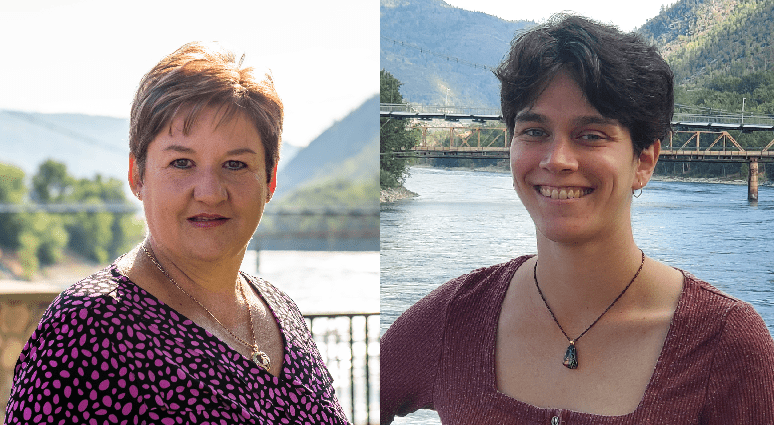New co-director leadership at regional economic development office
Economic activity is ramping up in the Lower Columbia region, as two new directors lead the charge.
Rebecca Richards has been appointed Director of the Lower Columbia Initiatives Corporation (LCIC) in partnership with Jacomien van Tonder, Director of Metal Tech Alley. Their co-directorship responds to both entities’ increasing need for dedicated leadership.
“Metal Tech Alley has grown tremendously; what started as a relatively small project has taken on a life of its own,” says Richards. “It deserves full attention from a director to see the continuation of the project through to the next level. Our co-directorship is a natural step in terms of dividing up the responsibilities between LCIC and its investment attraction initiative, Metal Tech Alley.”
As the economic driver in the region, LCIC works with other organizations to create and support a positive business environment while locally addressing industry needs and concerns. Metal Tech Alley’s industrial circular economy model attracts global attention to the region, a hotbed for innovative companies establishing their businesses in a resource-rich environment.
With an M.A. in political studies and a B.A. in economics and sociology, Richards is a critical thinker who pairs her research and data analysis skills with a strong work ethic and collaborative approach. She is committed to serving Lower Columbia communities and enthusiastic about participating in broader West Kootenay economic development initiatives.
“I’m responsible for operations management, local stakeholder and partner relations, and developing supportive programming for industry. I find my work at LCIC really meaningful,” says Richards. “In resource-based industries, the economy can be much more precarious for businesses; having support systems in place is paramount.”
Her work lays the foundation for van Tonder’s efforts with Metal Tech Alley. What initially started in 2017 as a marketing strategy celebrating the region’s metallurgic and technical aptitude has grown into a thriving industrial circular economy that celebrates a network of innovative businesses in the Lower Columbia.
Originally from South Africa, van Tonder’s appetite for putting Trail on the map is fuelled by her no-limits attitude and refined by her previous career in law. After completing a B Proc degree from the University of South Africa, van Tonder worked as an attorney before shifting to management positions within legal and general business industries.
Her expertise has been a boon to LCIC over the past five years. In addition to gaining Metal Tech Alley recognition as one of 13 case studies in a federal agency Environment and Climate Change Canada report, the organization recently held the inaugural Industrial Circular Economy (ICE 2021) Conference. van Tonder is now planning for ICE 2023 and currently showcasing Metal Tech Alley at the World Circular Economy Forum. While most of her work is at the provincial, national, or international levels, it also significantly benefits the local business community by promoting their successes and connecting them with large-scale opportunities.
“Metal Tech Alley is a leader in the industrial circular economy in rural Canada,” says van Tonder. “We want to further strengthen our presence and keep making it bigger and better so our local economy can flourish and the world can look to this region as a prime example of the model.”
After being appointed as co-directors this summer, neither Richards nor van Tonder have skipped a beat, working seamlessly together and pursuing major goals. One ambition is securing Metal Tech Alley’s inclusion in Circular Economy Leadership Canada’s pitch to the federal government for $49 million for a Circular Economy Innovation Network, which aims to support similar Canadian initiatives.
“At the local level, LCIC is investigating regional supply chains,” explains Richards. “With recent support from ETSI-BC, we’re continuing to research and analyze the gaps and barriers local companies face, as well as what potential opportunities there are. We’re taking a proactive approach to ensure our region—which has so much potential—remains resilient for years to come.”






















